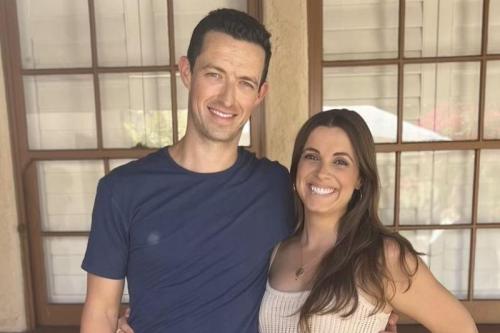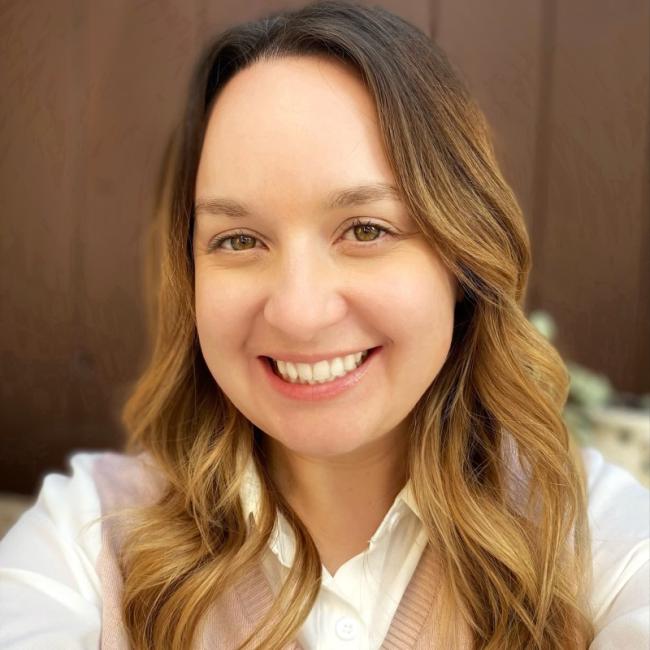
FDA approval of targeted therapy offers renewed hope for people with desmoid tumors
When Jon Fields, 33, was diagnosed with an extremely rare and potentially debilitating soft-tissue tumor in December of 2018, he didn’t know there were no standard treatment options or approved therapies for the type of tumor he had.
Desmoid tumors, also known as aggressive fibromatosis, grow from the connective tissue and mainly affect people in their 20s and 30s. While these tumors are not cancerous, they can grow quickly and invade nearby tissues and organs, causing severe damage and complications.
Just 28-years-old at the time, Fields was already dealing with lots of swelling and pain in his right hip, along with pain radiating along the sciatic nerve.
He initially had surgery to remove the tumor, but within a few months it came back with a vengeance.
At times, the pain and discomfort were so severe that Fields had trouble bending over far enough to tie his shoelaces – noting that his girlfriend, soon to be wife, would have to help him with this simple task from time to time.
Doctors told him he could do chemotherapy and/or radiation, but those options just didn’t sit well with Fields.
“At this time, I knew I had limited treatment options since there wasn’t an approved medication for my type of tumor,” said Fields. “So, I started researching and saw that there was this drug that was about to go into a phase 3 clinical trial study for the treatment of desmoid tumors. I decided to check it out and I ended up making the drive from San Diego to Los Angeles and that’s where I met Dr. Federman.”
World-renowned soft-tissue tumor expert
Noah Federman, MD, a professor of pediatrics and orthopaedics, was an investigator on a clinical trial looking at an investigational drug called nirogacestat. Dr. Federman is the Glaser Family Endowed Chair and director of the UCLA Health Jonsson Comprehensive Cancer Center’s Pediatric Bone and Soft Tissue Sarcoma Program and medical director of CTSI Clinical and Translational Research Center.
Nirogacestat is a targeted therapy that works by blocking the activity of the protein gamma secretase, which activates another protein called Notch. This protein is thought to drive the growth of desmoid tumors. By blocking this activity, the drug might interfere with the pathways that help desmoid tumors grow.
“Thankfully, meeting Dr. Federman was a game changer for me,” said Fields. “Right when my wife and I met him, I was in a pretty bad spot. I had a lot of anxiety about choosing what to do and he just sat down with me and listened. He wasn't an alarmist and he didn't stress me out. He just gave me the facts. And it was just kind of his whole demeanor that just made me feel very comfortable and made me realize that I was in the right place.”
In September of 2019, Fields decided to be part of the trial and began taking an oral medication twice a day for the next three years.
The start of the DeFi clinical trial
The phase 3 trial, called DeFi, was a randomized double blinded placebo-controlled trial, meaning participants were randomly assigned to either receive the targeted therapy or a placebo. Neither the physician nor the patient knew which participants received the actual treatment or the placebo.
However, in the first three months of being on the trial, Fields saw that his tumor had shrunk almost in half. And then from there it kept shrinking. Initially the tumor was about 10 centimeters, roughly the size of a navel orange. Today, it’s now just a couple centimeters and is stable.
“Jon was one of the earliest patients to be enrolled on the phase 3 study,” said Dr. Federman. “I remember vividly the constant symptoms and discomfort he was in from his desmoid tumor. His quality of life was significantly impacted. But, about one month after he first started the medication, he was basically symptom free. He could walk long distances, exercise and he could tie his shoelaces by himself.”
A few months later, Fields’ first MRI imaging confirmed there was a significant reduction in size in the desmoid tumor mass in his hip. Much later, Federman was able to unblind him and confirm that he was indeed on nirogacestat.
And Fields wasn’t the only one with positive results. Many of the patients enrolled in this trial at UCLA and worldwide have had good outcomes.
Promising results from clinical trial led to FDA approval
The results of the study, published in the New England Journal of Medicine in March 2023, showed treatment with nirogacestat either partially or completely shrank tumors in 41% of patients. For patients given a placebo, only 8% had tumor shrinkage.
The trial included 142 adults between the ages of 18 and 76. After two years, tumors did not grow in more than 76% of patients on nirogacestat, compared with only 44% of patients in the placebo group.
Patients who received nirogacestat also reported significant improvements in pain, physical functioning and overall quality of life.
Common side effects included fatigue, gastrointestinal problems and skin rashes. A serious side effect included ovarian dysfunction for some female participants, but it was resolved after participants stopped taking the drug.
After the data was published, the manufacturer of nirogacestat submitted the findings to the U.S. Food and Drug Administration (FDA) for approval of nirogacestat for the treatment of adults with desmoid tumors. It was approved on November 27.
“This is a game changer for the desmoid tumor community,” said Dr. Federman, who was an author on the study. “Nirogacestat not only showed antitumor activity, but it had significant and lasting improvements in various aspects of patients' lives. I cannot tell you how good it feels to be able to tell patients with this type of tumor that we now have an FDA-approved medication specifically targeted to their tumors that has been rigorously tested across hundreds of patients in clinical trials.”
Moving on to bigger and better things
Fields, a real estate agent in San Diego, can now start to focus on the more exciting things in life. He and his wife just welcomed their first baby girl into the world and are busy nurturing their growing family and creating lasting memories together.
“I feel great,” said Fields. “It’s a really nice change to not have to take medication every day. I'm just kind of living like I was before all this happened – with the exception of a newborn.”

